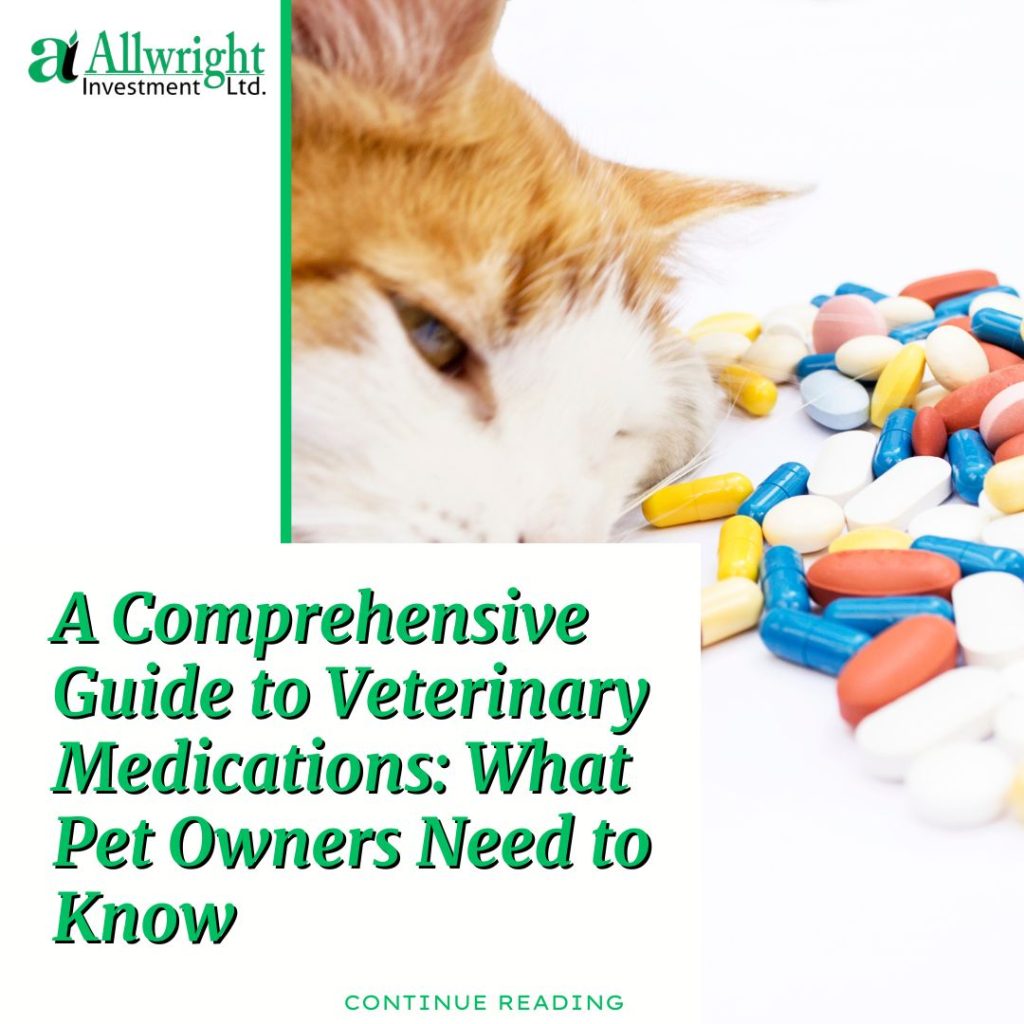
When it comes to the health and well-being of our pets, understanding veterinary medications is essential. Medications play a crucial role in preventing, managing, and treating various health conditions in animals. As a responsible pet owner, it’s important to be informed about the different types of veterinary medications, their uses, and how to administer them correctly. Here are the things you need to know about veterinary medications for your furry companions.
Types of Veterinary Medications
- Antibiotics
- Usage: Antibiotics are used to treat bacterial infections. They help eliminate harmful bacteria and prevent the spread of infections.
- Common Examples: Amoxicillin, Clindamycin, Enrofloxacin.
- Antiparasitics
- Usage: These medications are designed to prevent and treat infestations by parasites such as fleas, ticks, worms, and mites.
- Common Examples: Ivermectin, Fenbendazole, Praziquantel.
- Anti-inflammatories
- Usage: Anti-inflammatory medications help reduce inflammation and pain, making them essential for conditions like arthritis or injuries.
- Common Examples: Prednisone, Carprofen, Meloxicam.
- Vaccines
- Usage: Vaccines are preventive medications that protect pets from various infectious diseases.
- Common Examples: Rabies vaccine, Distemper vaccine, Parvovirus vaccine.
- Pain Relievers
- Usage: Pain relievers, or analgesics, are used to manage pain in pets, often following surgery or injury.
- Common Examples: Tramadol, Gabapentin, Buprenorphine.
- Hormonal Treatments
- Usage: Hormonal medications address endocrine disorders such as hypothyroidism, diabetes, and adrenal gland issues.
- Common Examples: Insulin, Levothyroxine, Trilostane.
Importance of Consulting a Veterinarian
Before administering any medication to your pet, it is crucial to consult a veterinarian. A professional will provide a proper diagnosis, determine the appropriate medication, and prescribe the correct dosage. Self-medicating pets can lead to adverse effects and complications.
Proper Administration of Medications
- Follow Prescriptions Accurately: Always follow the veterinarian’s instructions regarding dosage and administration frequency.
- Use the Correct Form: Medications come in various forms such as tablets, liquids, injections, and topical treatments. Ensure you use the form prescribed.
- Monitor for Side Effects: Keep an eye out for any adverse reactions your pet may have to a medication and report them to your vet immediately.
- Complete the Course: Even if your pet seems to be feeling better, complete the entire course of medication to ensure the condition is fully treated.
Storing Veterinary Medications
Proper storage of medications is essential to maintain their effectiveness. Here are some tips:
- Temperature: Store medications at the temperature specified on the label, usually at room temperature or refrigerated.
- Light and Moisture: Keep medications away from direct sunlight and moisture to prevent degradation.
- Original Packaging: Store medications in their original packaging to avoid contamination and confusion.
Preventing Medication Errors
- Label Checks: Always check the label before administering medication to ensure it is the correct one.
- Double-Check Dosages: Use a proper measuring device for liquid medications to ensure accurate dosing.
- Avoid Mixing Medications: Do not mix medications without veterinary approval, as interactions can occur.
Being well-informed about veterinary medications helps pet owners provide the best care for their animals. Understanding the types of medications, their uses, and how to administer them properly ensures that pets receive the necessary treatments to stay healthy and happy. Always consult your veterinarian for guidance and support in managing your pet’s health needs.
Invest in Allwright Limited today!

Leave a comment
You must be logged in to post a comment.